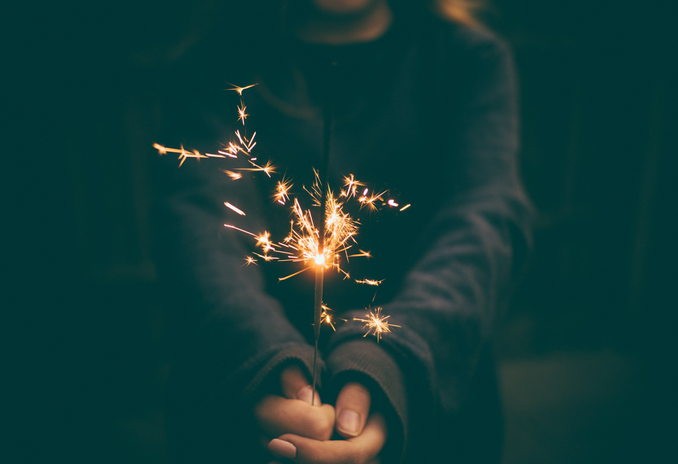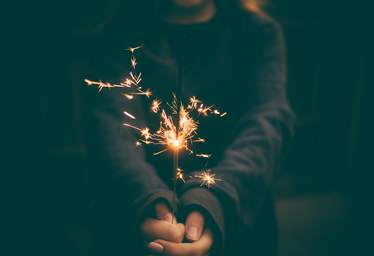Hi, my name is Adrien, and to many people, I’m probably a terrible person. But that’s okay, because so are you.
I could be considered a terrible person because:
1. I regularly buy and use bottled water.
2. I use Spanish words as interchangeable vocabulary in sentences because I enjoy the “It’s a Small World” ride too much and I think it’s fun to “mix it up.”
3. I often use being black to cancel out that I am also white and try to use that as an excuse to not be held accountable for typical white people behaviors such as the above.
4. I like Starbucks, even though it’s the flag of gentrification and sources from farms that use slave labor (but, if I remember correctly, so did a pretty decent portion of the United States).
5. I yell at the squirrels on campus and will threaten them with violence if they get too close.
Between my own understanding of how my actions can contribute to some negative outcomes and my friends’ gentle nudging that I need to get it together, it’s easy to feel like a bad person. Eating meat makes me a villain, and using a plastic straw means I want all of the animals in the ocean to die. And I mean, I get it! I’m all for the persecution of people who stop at yellow lights when I’m running late, but in general, I think that society could benefit from being a little more forgiving and understanding instead of shaming others for their mistakes.
This month, our Her Campus chapter has been publishing articles under the theme of “Social Justice”, in which we’ve discussed the lack of equal opportunities and privileges within our society, and the need to combat injustice. Obviously, as a person who exists with awareness and empathy (just not for the people who have the audacity to stop at yellow lights when I’m right behind them and late to class), I think that social justice is something we should always be working on.
Yet, how do we as a society go about implementing social justice? How do we distinguish who is at fault, to what extent are certain members and systems of society at fault, and how do we hold those individuals accountable?
Our justice issues stem from hundreds of years of colonialism, industrialism, and the racist, misogynistic, potentially paradoxical brand of capitalism which runs our society today, yet sometimes “social justice” is framed in a way that puts a majority of this on the consumers and those just trying to get by. None of that is my fault, your fault (unless you’re reading this, Jeff Bezos), or the person sitting next to me’s fault, unless somehow I end up sitting next to Jeff.
Nevertheless, this doesn’t mean none of us are responsible for our actions just because powerful individuals have left us with hard dilemmas that we don’t necessarily have the tools (money) to solve. Although a lot is out of our control, we still can act and seek to do some forms of good, no matter how small. I was never responsible for Chick Fil-A being homophobic, but after years I have finally made the decision that I won’t support them anymore. That’s a choice. Chick Fil-A has some of the best fries and lemonade I’ve ever had, but if I want good fries I can just go to McDonald’s, who’s partnered with Coca-Cola, who actively donates to anti-abortion groups and ultimately funds such political regression.
It often seems like there is no way to make a “good” choice. While your choice of fast food may be more flexible, other markets like clothing make it harder to escape the unethical ramifications. People shouldn’t be shamed because they can’t pay $600 for an ‘ethical’ sweater. I’ve been wearing the same $10 Steve Jobs sweater from H&M for five years now. The unjust labor that went into that sucks beyond belief, but I can’t fully hold that against myself, in considering the other option.
Obviously, none of these aforementioned things make me as bad as any of the men in the Alabama state government or the ultraviolent youth of A Clockwork Orange, but that doesn’t mean my behavior is excusable or without consequence either. I should feel bad about the things I mentioned earlier (well, maybe not the squirrel thing), and I should be trying to actively improve myself. I can’t singlehandedly change Starbucks or the fact that the squirrels at this school are fearless and will do anything for food, but I can try to add some good things to this often depressing world. Lucky for us, being good and being terrible aren’t mutually exclusive, and I like to think I have some redeemable qualities.
1. Although I can be a people pleaser at times, I “always tell it straight from the heart” when it matters, as one of my friends put it.
2. I can make people laugh.
3. In the event of a Star Wars themed Jeopardy competition, I could win so much money.
4. If you need someone to be thoughtful and supportive, I’m really good at that.
5. My Christmas snickerdoodles, though non-traditional in texture, bring joy every year to my family, my friends, and me.
There are a lot of problems in the world, and Lord knows I’m part of them ─ but a small part, and the hope is that part will get smaller and smaller over time. I have my things I’m working on, and I can only hope everyone else has theirs, too. We all have our faults, and we all have good things we bring to the table. Human beings are full course meals, and unfortunately you have to deal with the salad before you get to the steak and potatoes (factory farming is also a huge problem that is probably killing the planet, but tri-tip is so good sometimes I think it’s totally worth it).
All things considered, it isn’t difficult to be a good person, but it’s really hard to be a fully socially just person in the world we live in today. So while we should all try our best to improve ourselves and our collective society, I don’t think any of us have a place to look down on others who are probably trying to do the same in a different way than our own.
The truth is we’re all just terrible people living in a terrible world, but hopefully we do our parts to make it less terrible. If not for the dogs, at least for the kids.
Images courtesy of author.


